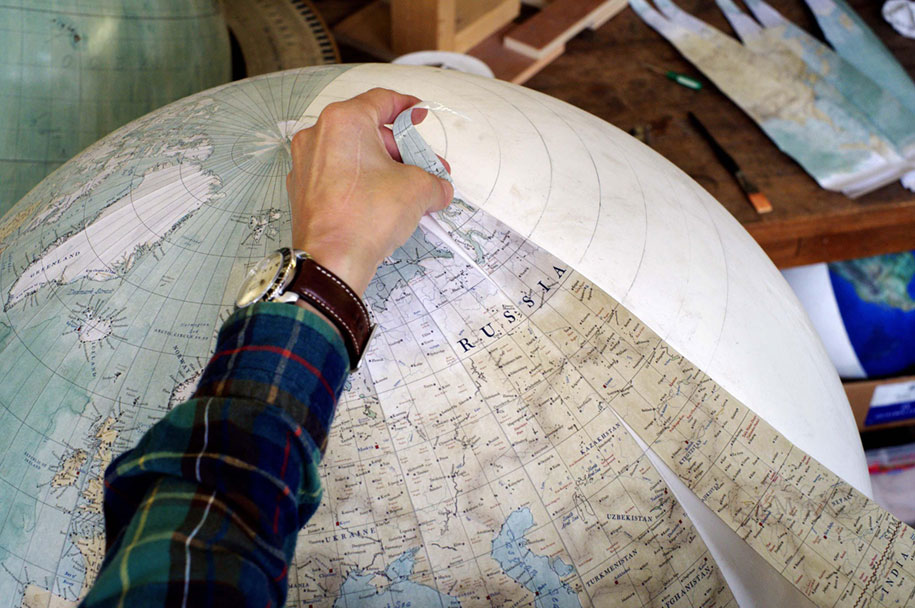
Hand Crafted Globes By One Of The Last Globemakers On Earth
Who needs globes when we have Google Earth? Some people do, and Bellerby & Co. Globemakers is one of two globemaking companies in the world. While cheap, flimsy globes are readily available worldwide, Bellerby’s work combines both old school methods and modern technologies. Even their biggest globe – the 127 cm Churchill – is made using “goring”, which is gluing map strips on the globe.
Peter Bellerby wanted a globe for his father’s 80th birthday. Unfortunately, he had to choose between flimsy cheap globes and fragile antiques. Bellerby chose the door number three, and decided to make one himself. This was much harder than he realized, starting with the search for accurate maps, and ending up with globe rotation issues. Along the way, he established a workshop and is now making classy, classical globes.
More info: bellerbyandco.com | facebook | instagram | twitter (h/t: mymodernmet)
Peter Bellerby started making globes in 2008; new team members need about six months of training.

He had to figure out globemaking process by himself; it took two years to make a globe he could sell

Image source: Stuart Freedman
Pater’s favorite part is putting on the last “gore” – a triangular bit of map that goes on the glove

Unsurprisingly, Peter hopes to pass these skills down to his family

Gores get multiple layers of paint; gore have to be made in identical sets, so that damaged ones could be readily replaced


Measuring the orb and goring is an arduous process: if the gores are too small, it could lead to big gaps in coverage

Gores are soaked in water before stretching and applying them to the globe


Churchill is their largest globe at 127 cm diameter. It’s inspired by globes gifted to Franklin D. Roosevelt and Winston Churchill during WW2


Isis started painting around the coastlines in England and is working her way around Cambodia, Vietnam & towards the Americas


An 80 cm globe in progress: the first half of the gores have to be laid down before the second hemisphere can be matched to them

The gores are not printed in color: by adding pigmentation by hand, the globemakers achieve a better depth effect


The studio works on several globes at the same time as the process requires time to set and dry


Globes are usually transferred to a wooden base with a roller bearing system.




Laying and manipulating the last gore onto a 36cm globe

Image source: Stuart Freedman
Peter Bellerby himself

Image source: Allun Callender
Desk Globes

Image source: Ana Santl
Painting the Churchill

The largest globe vs. the smallest









Got wisdom to pour?